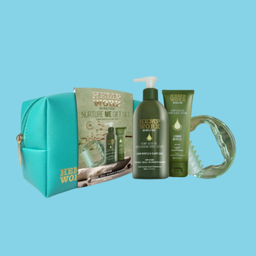Get more zzzs
Insomnia is a nightmare. But you’re not alone – it affects around 15 per cent of Australians. Try our ideas to get more shut-eye.
1. Go to bed when you’re tired
Respect your circadian rhythm: we all have a ‘window’ in which we should go to sleep and it is harder to drop off if we miss it. If you find yourself lying there, unable to sleep, get up, leave the room, and only return when you feel sleepy.
2. Wake up at the same time
Looking forward to a weekend sleep-in to recover from your accumulated lost sleep during the week? Research from the University of Colorado suggests that this isn’t a good idea.
“The key message from this study is that weekend ‘catch-up’ sleep is not an effective countermeasure strategy to reverse sleep loss-induced disruptions of metabolism,” explains Dr Kenneth Wright, Jr. “The best way to recover from your ‘sleep debt’ is to go to bed earlier and then wake at your normal time.”
3. Don’t eat two hours before bed
According to Michael Crupain, co-author of What to Eat When, your circadian rhythm is set by the sun and you should eat in line with that. Put simply, you should eat when the sun is up and fast when it is not.
4. Skip screen time
Our modern lifestyle means we are exposed to relatively high levels of artificial blue light from screens. Blue light interferes with your natural circadian rhythm, which negatively affects the quality of your sleep. Your mind needs time to unwind and relax into sleep with exposure to natural light only.
Turn off your laptop and television at least 45 minutes before bedtime. Avoid scrolling through Instagram or checking emails on your phone (although most smartphones have a blue light filter setting – try turning this on two hours before bedtime). If you must use screens prior to sleeping, wear blue light-blocking goggles.
5. Stay cool
Your core body temperature has a lot to do with your quality of sleep. When you fall asleep, your body temperature drops to conserve energy. However, if you are in a too-hot bedroom your body will struggle to reach and maintain the optimal temperature for sleep, resulting in poor sleep quality.
According to The Sleep Council, the ideal temperature for sleep is 16-18°C: “Hot, cold and drafty rooms can seriously impact your sleep. Your body heat peaks in the evening and then drops to its lowest levels when you’re asleep, so a cool 16-18°C is thought to be an ideal temperature in a bedroom. Temperatures over 24°C are likely to cause restlessness, while a cold room of about 12°C will make it difficult to drop off.”
6. Keep it dark
Exposure to even low levels of light has been shown to affect sleep quality and disrupt sleep cycles. The National Sleep Foundation explains why: “Artificial light after dark sends wake-up messages to the brain, suppressing production of the sleep-inducing hormone melatonin and making it harder to fall asleep and stay asleep.”
7. Get enough magnesium
Dr W. Davis ran medical studies which trialled the use of magnesium chloride on 200 patients. The results were that sleep was induced rapidly and this sleep was uninterrupted; daytime fatigue also disappeared. An unexpected bonus was that anxiety and stress were both reduced. Magnesium relaxes our muscles and nervous system, helping us to wind down. Magnesium also lowers cortisol, the ‘stress hormone’ that keeps us up at night, and raises levels of melatonin, our ‘body clock’ regulator. Try topical applications of magnesium.
8. Scent your sleep
Lavender oil has a reputation as a mild sedative. Dab a little on to your temples and forehead before you hit the pillow.
9.Check all labels
Be cautious about taking any over-the-counter medications – some may contain caffeine, a stimulant.
10. Avoid alcohol
A drink may make you feel relaxed, but the effects soon wear off and you’re more likely to have to get up to use the bathroom.

